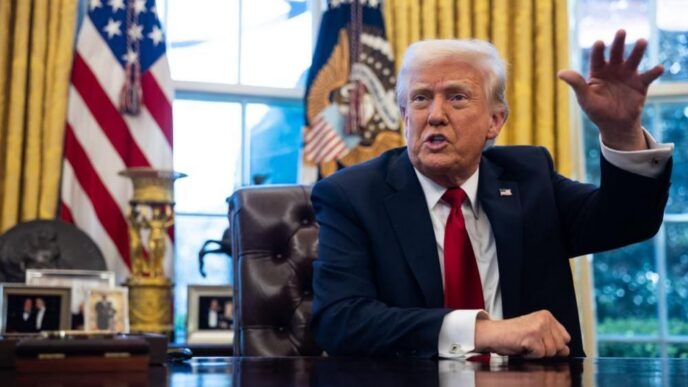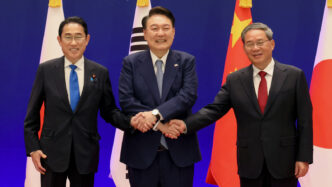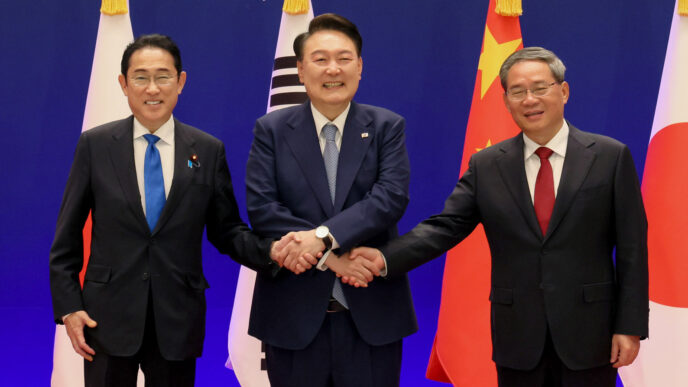For decades, Britain’s alliance with the United States has been framed as a cornerstone of its foreign policy—a “special relationship” that has shaped diplomacy, security, and trade. But as the world shifts, the cracks in this partnership are becoming impossible to ignore. The reality is sobering: America’s priorities are no longer aligned with Britain’s, and clinging to this lopsided relationship is proving increasingly costly.
The Myth of Mutual Benefit
The assumption that the US has been a benevolent protector of Britain and Europe is historically flawed. Since 1945, Washington has positioned Europe as a buffer against Russia, using NATO to reinforce its global dominance while demanding loyalty and compliance. Britain, once an empire of its own, has steadily slipped into the role of junior partner, too often following America’s lead into costly and ill-fated conflicts.
Claims that the US “saved” Britain during World War II are exaggerated. Britain fought for its survival before America entered the war. Post-war, the US capitalized on Britain’s economic weakness, taking over markets, military bases, and strategic influence. The Suez Crisis of 1956 cemented Britain’s subordinate role. Even today, American policies continue to dictate British security, often at the expense of national interests.
A History of Costly American Misadventures
From the Cold War to Vietnam, from Iraq to Afghanistan, Britain has stood by the US, paying the price in blood, treasure, and international credibility. The disastrous 2003 Iraq invasion, justified by false claims of weapons of mass destruction, became a turning point. The repercussions of that war—including the rise of ISIS—continue to shape global instability.
Post-9/11 policies brought further entanglements, from Guantánamo Bay to extraordinary rendition programs. Britain, by association, became complicit in human rights abuses. More recently, the chaotic US withdrawal from Afghanistan left allies scrambling and betrayed Afghan partners, reinforcing the notion that America’s strategic blunders leave its allies to clean up the mess.
Trump, Ukraine, and Transatlantic Tensions
Today, as the world faces the challenge of Russian aggression in Ukraine, Britain finds itself at the mercy of America’s erratic leadership. Former President Donald Trump’s dismissive attitude towards NATO, coupled with his bizarre admiration for Vladimir Putin, has left Europe in a precarious position. His return to power could further undermine transatlantic stability.
Meanwhile, US officials openly belittle Britain. Trump’s Ukraine envoy, Steve Witkoff, dismissed Prime Minister Keir Starmer’s security proposals as mere “posturing.” Vice President JD Vance trivialized Britain as just another “random country.” Such condescension underscores how the so-called special relationship is anything but mutual.
Reclaiming Britain’s Sovereignty
Post-Brexit, Britain faces an identity crisis. While seeking closer trade ties with the US, it remains economically, militarily, and politically bound to American priorities. Yet, Washington’s economic policies—trade tariffs, pharmaceutical dominance, and tech monopolies—exploit rather than support British interests.
Beyond economics, cultural and social influence from the US is reshaping British society. The Americanization of media, political discourse, and regulatory standards often comes at the cost of Britain’s own traditions and values. Trump’s divisive politics, fueled by populism and misinformation, threaten to erode transatlantic cohesion even further.
A Future in Europe, Not America
The time has come for Britain to reconsider its geopolitical future. Europe, despite its challenges, offers a more balanced and sustainable partnership. The EU’s renewed sense of unity—especially in the face of external threats—presents an opportunity for Britain to reintegrate into a reformed and revitalized European framework.
While total severance from the US is neither possible nor desirable, a shift in strategy is imperative. Britain must assert its independence, aligning with European allies to foster a more stable and equitable international order. Continued blind allegiance to America’s unpredictable leadership will only serve to weaken Britain’s global standing.
The path forward is clear: strategic disengagement from Washington’s excesses, a recommitment to European cooperation, and a firm stance in defending Britain’s national interests. The era of unquestioning loyalty to Uncle Sam must end—before the cost becomes too great to bear.
















